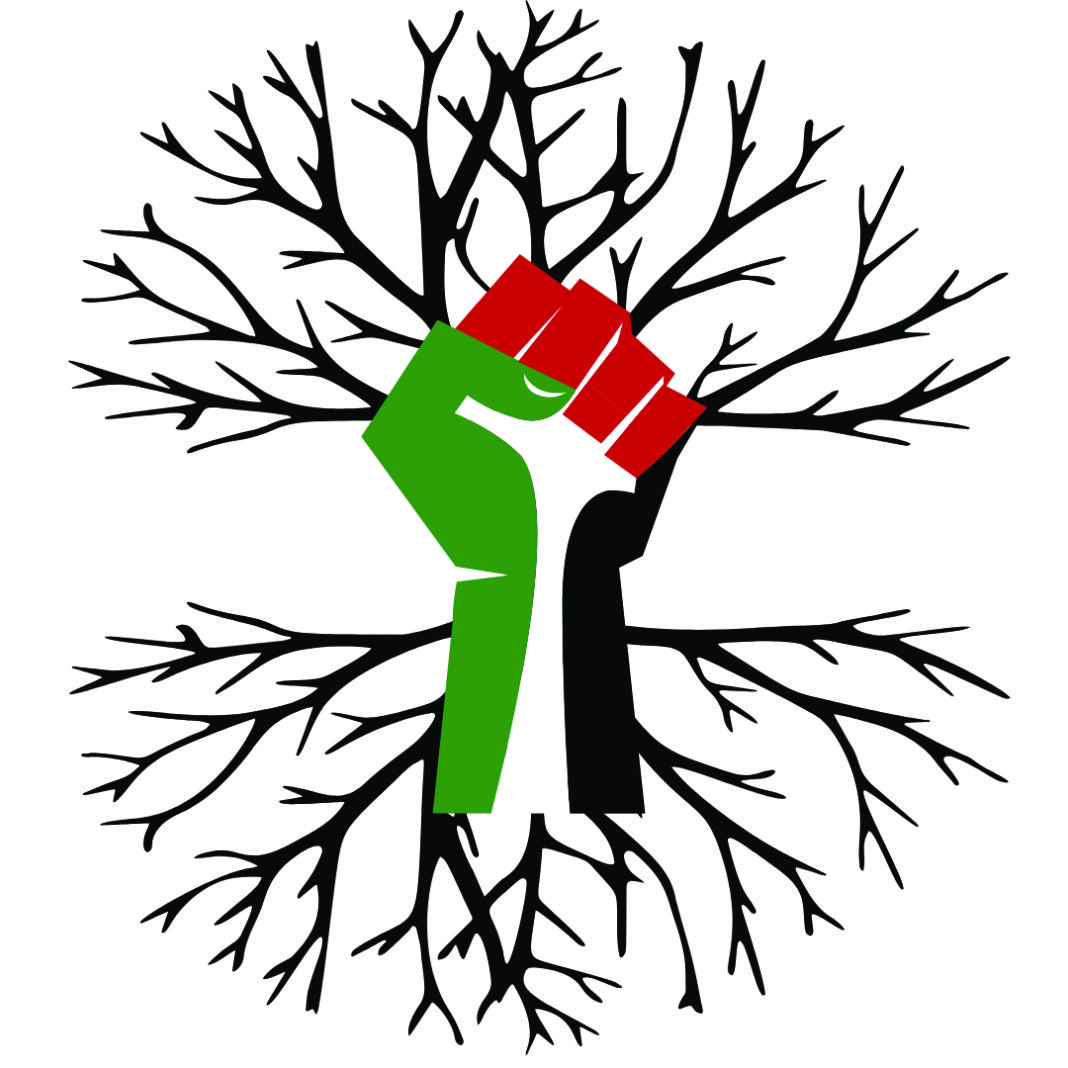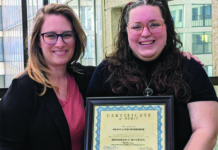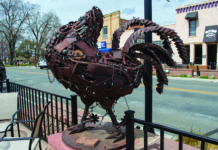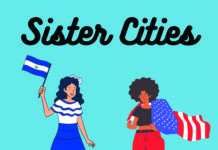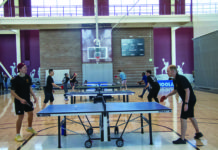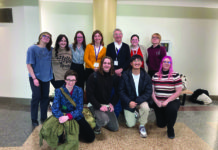On April 10, a small group gathered in the back of Desert Bloom Hydroponics to engage with and commemorate Palestinian culture in light of the current war in the Gaza Strip.
Since Oct. 7, 2023, the State of Israel has been waging a war of annihilation against Palestinians in Gaza, under the pretext of eliminating the Palestinian nationalist group Islamic Resistance Movement, known to most as Hamas. Since the beginning of the siege on Gaza, over 30,000 Palestinians have been killed and over 70,000 injured, according to the United Nations official website. Over 70% of those killed or injured have been women and children. On the Israeli side, a little over 200 Israeli Defense Force (IDF) soldiers have been killed, and around 1,000 Israeli civilians have been killed, according to data from the Israeli government.
Over 100 aid workers sent by the United Nations Relief and Works Agency for Palestine Refugees in the Near East (UNRWA) have also been killed, mostly by Israeli airstrikes. The UNRWA has been doing extensive work in Palestine since 1949, and has warned that the situation in Gaza is becoming more dire every day. Famine caused by destruction of industry and agriculture by Israeli airstrikes put over half a million people at risk of death by starvation.
This has been exacerbated by IDF interference with aid attempts, which has so far taken the form of aid packages of food and medicine being seized by IDF soldiers, and the targeting of hospitals and aid centers by ground raids under the pretext that they served as secret Hamas bases. No evidence has been found to indicate that these buildings were used for such purposes.
The events in Gaza have shocked the world, and here in Grand Junction, a local organization called Western Slope for Liberation organized a fundraiser for aid and relief in Gaza, which took the form of a class in which participants, after a small donation, were taught about two vegetables that are staples of Palestinian cuisine. Participants who donated were given seeds and taught how to grow the plants and use them for cooking both Palestinian foods, as well as how they could be incorporated into many American dishes. Donations were sent to organizations working to provide aid on the ground in Palestine.
The event was organized by Laura Houston, who works as a bartender and server in Grand Junction.
“I want to educate and help people connect with something that might be outside their daily world,” Houston said. “Given all of the events that are currently transpiring across the sea and in different parts of the world, I think it’s incredibly important, especially now to continue to educate and connect ourselves. I’ve researched like crazy on the plants that we’re going to be planting today, Molokhia and Palestinian Summer Squash. We are going to talk about these pretty extensively and how you can cultivate them here in the valley.”
About 10 people showed up to the event, and each of them went home with their own seeds and instructions on how to grow them. Every participant was a resident of the Grand Valley concerned about what’s happening in Palestine and wanting to do whatever they could to help.
“The Israeli-Palestine conflict as a whole is a tragedy,” said freshman criminal justice student Tyler Patch. “We’re seeing 75 plus years of history unravel. What the Israelis are doing is nothing new, but because of the way we now have access to social media, it’s becoming more commonly known by Americans. Don’t be mistaken, for the past 70 years, your tax dollars have been funding what is pretty much an active genocide. It’s really just a tragedy, a modern genocide that we are seeing in full color.”
The event highly emphasized understanding and carrying on the traditions of Palestinians, even if it is in a small way, while they themselves are unable to. It was a way to connect events that seem far off to everyday life in a real and hands-on way.
“I wasn’t really involved in politics or anything like that until about the beginning of the year when I learned what was happening,” local resident Max Freeman said. “It just hit me really hard. And I started seeing all the images and videos[…] so I’ve been going to protests, trying to get as educated as possible, because they are people too. There’s no guarantee that after everything happens, that they’re going to be able to continue very well. So it’s other people’s responsibility[…] to keep their traditions and their memories alive.”

